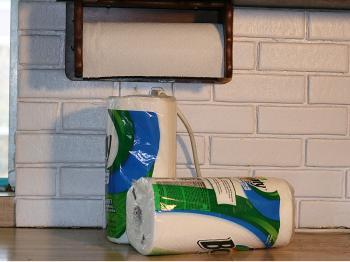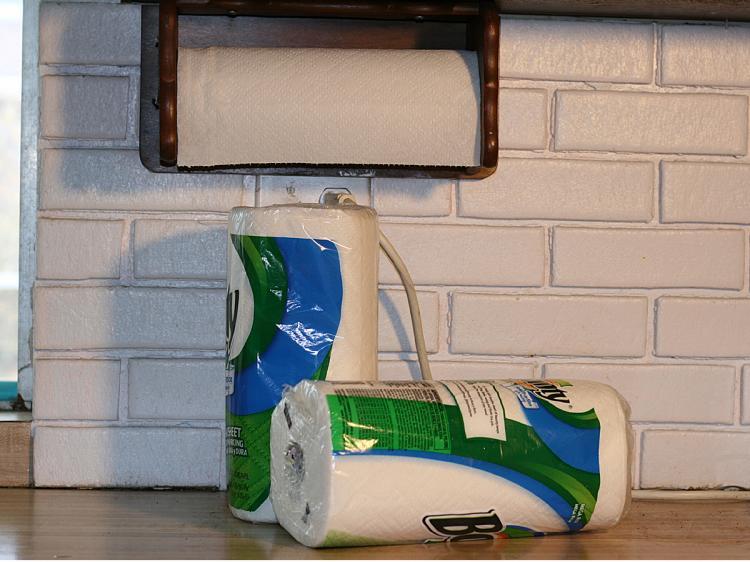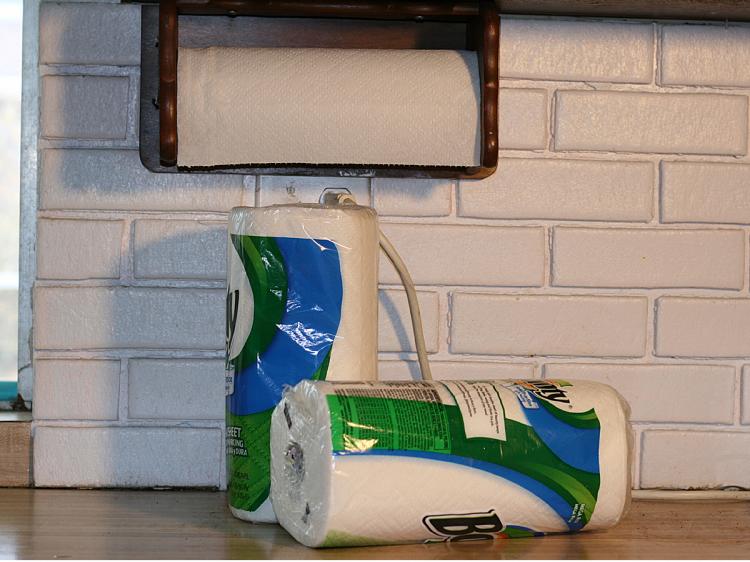Before paper towels, it was common practice to use cloth towels to clean up spills. Since cloth was used, a household had to have a lot of rags at hand. Just think: dusting, window cleaning, kitchen spills—they all require the use of a cloth. Of course, this was also a way to recycle old sheets, pillowcases, towels, and other pieces of clothing. On the other hand, cloths also require cleaning. So, water to clean them is a consideration.
Cloth may not always be as absorbent as paper towels. If cloth is used to clean up a spill, depending on what type of thing was spilled, the cloth may need to be washed immediately—or at least rinsed out. On the other hand, if you use paper towels to clean up a spill, they can immediately be disposed of in the garbage.
In my house, I have some old bath towels around that I specifically use for large spills. I also have a mop and some small rags, old hand towels that can be used for cleaning just about anything. However, there are some jobs that I have always used paper towels for, and I’ve gotten into the habit of using paper towels for those jobs like cleaning glass—windows, mirrors, picture frames.
The main things I do with paper towels other than cleaning glass and ceramic surfaces (like the bathroom, especially), is wiping up spills on the stove, wiping my hands while cooking, and covering food in the microwave so it doesn’t spatter. If I were to substitute some kind of cloth for the cleaning jobs, and only use paper towels occasionally, I believe that I would be able to use a lot less paper towels and more importantly, get into the habit of using cloth for cleaning.
This may not seem like a big step, but I think it is actually a critical one: in order to “clean green,” we need to step out of the habits that have made us think that everything should be disposable. Everything that is disposable eventually has to go somewhere, and the more disposable things we use—and discard—the more space is taken up by those disposable things. Disposable things have made our world a growing trash heap—and we are living right in the middle of it.
As for sponges and those pop-up wipes, I think I need to take a good, hard look at why I need them as well. Sponges can be washed, but eventually they do become infested with bacteria—and worn—and so they end up as waste, too. Pop-up wipes are convenient, and that’s pretty much it. They certainly aren’t any better than paper towels in the end.
Ultimately, I think it comes down to this: paper towels, sponges, and pop-up wipes are convenient—that’s really why we use them. Don’t they waste paper (trees!) and isn’t the packaging plastic that isn’t recycled (landfills!) and don’t they just reinforce the disposable mentality we’ve all been infected with?
All of this reflection reminded me of those things called “Handi-Wipes” that came out before paper towels became popular. They were actually disposable too, but you could use them quite a bit before throwing them away. Ultimately, were they just a precursor for paper towels—a means to get consumers used to the idea of throwing things away?




